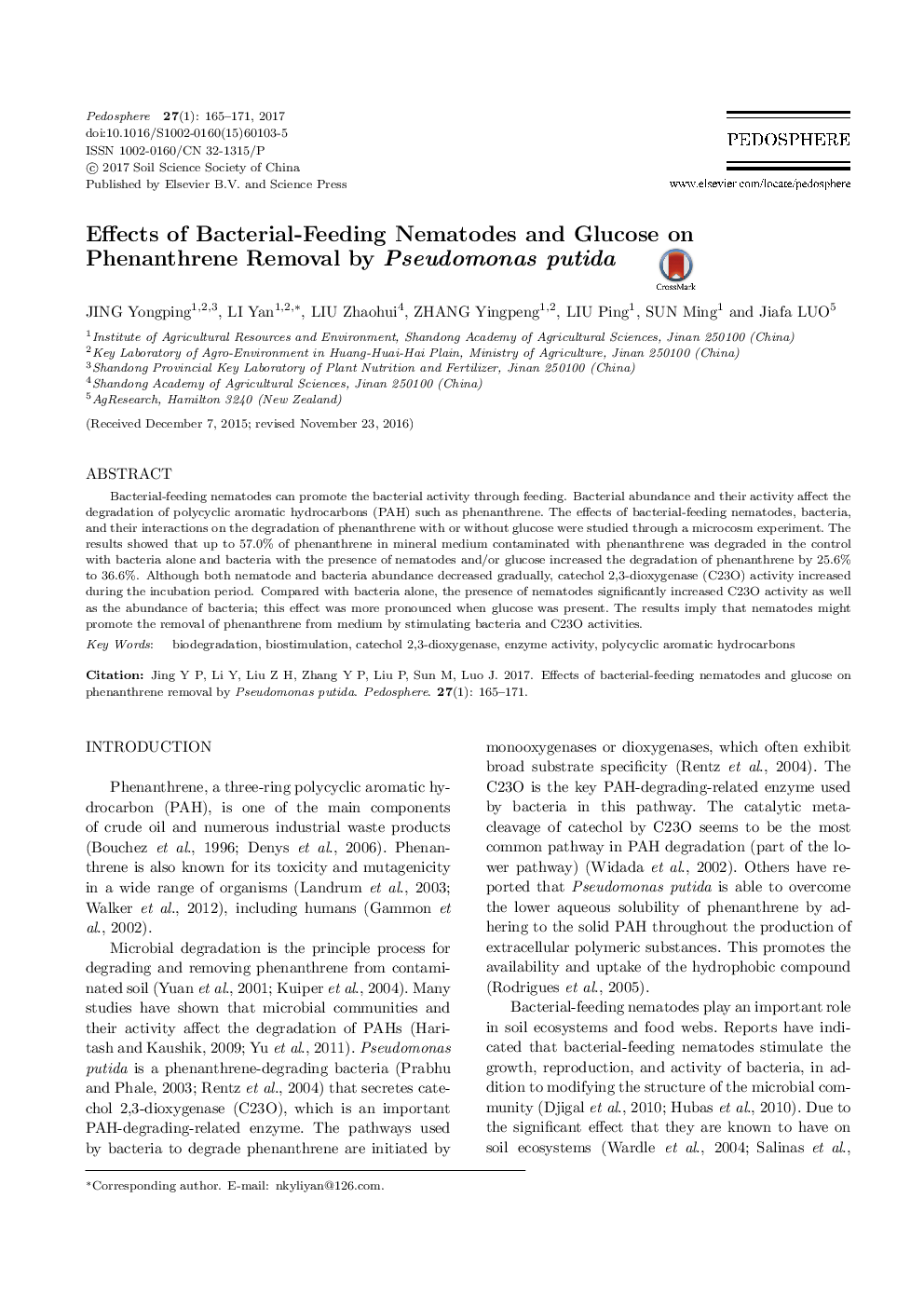| Article ID | Journal | Published Year | Pages | File Type |
|---|---|---|---|---|
| 8895547 | Pedosphere | 2017 | 7 Pages |
Abstract
Bacterial-feeding nematodes can promote the bacterial activity through feeding. Bacterial abundance and their activity affect the degradation of polycyclic aromatic hydrocarbons (PAH) such as phenanthrene. The effects of bacterial-feeding nematodes, bacteria, and their interactions on the degradation of phenanthrene with or without glucose were studied through a microcosm experiment. The results showed that up to 57.0% of phenanthrene in mineral medium contaminated with phenanthrene was degraded in the control with bacteria alone and bacteria with the presence of nematodes and/or glucose increased the degradation of phenanthrene by 25.6% to 36.6%. Although both nematode and bacteria abundance decreased gradually, catechol 2,3-dioxygenase (C23O) activity increased during the incubation period. Compared with bacteria alone, the presence of nematodes significantly increased C23O activity as well as the abundance of bacteria; this effect was more pronounced when glucose was present. The results imply that nematodes might promote the removal of phenanthrene from medium by stimulating bacteria and C23O activities.
Related Topics
Life Sciences
Agricultural and Biological Sciences
Soil Science
Authors
Yongping JING, Yan LI, Zhaohui LIU, Yingpeng ZHANG, Ping LIU, Ming SUN, Jiafa LUO,
